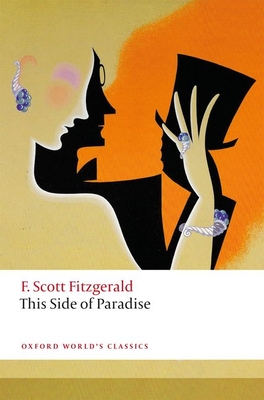Charles Sheard reviewed This Side of Paradise by F. Scott Fitzgerald
To be young and reading in 1920
4 stars
I really like very much of this book. Similar to H.L. Mencken, I do think the first half far surpasses the second, but Chapter V goes a long way to redeeming that second half. It helps to put your mind back a century to when this was first published, and when you knew nothing of Fitzgerald, allowing yourself to view its freshness. For all its flaws it is a terrific debut novel and I would have loved being there for its initial impact.
Maybe each new young generation needs its novel, while it still thinks it is different and unique and not yet cynical and disillusioned as to what it is capable of becoming. Ultimately the strength of this novel is that questioning by Amory Blaine of what he can become. Like him or hate him, those are questions most of us wrestle within during those same years of our …
I really like very much of this book. Similar to H.L. Mencken, I do think the first half far surpasses the second, but Chapter V goes a long way to redeeming that second half. It helps to put your mind back a century to when this was first published, and when you knew nothing of Fitzgerald, allowing yourself to view its freshness. For all its flaws it is a terrific debut novel and I would have loved being there for its initial impact.
Maybe each new young generation needs its novel, while it still thinks it is different and unique and not yet cynical and disillusioned as to what it is capable of becoming. Ultimately the strength of this novel is that questioning by Amory Blaine of what he can become. Like him or hate him, those are questions most of us wrestle within during those same years of our lives. Even wondering what are the questions themselves. "'Is he pretty important? Kinda more important than you are?' Amory laughed. 'That remains to be seen,' he answered. 'That's the question.'" Later, "'But all that has nothing to do with the question.' 'Just what is the question?' Here Amory has to pause to consider exactly what the question was." And like or hate Fitzgerald's self-congratulatory basking in his own literary education, it is at least honest and authentic in its representation of the ego of youth.
And if not the specific answer, Amory at least finally senses the right direction in which to seek an answer. "He found something that he wanted, had always wanted and always would want - not to be admired, as he had feared; not to be loved, as he had made himself believe; but to be necessary to people, to be indispensable." Of course, how to fulfill that aim remains a further question in need of an answer.

